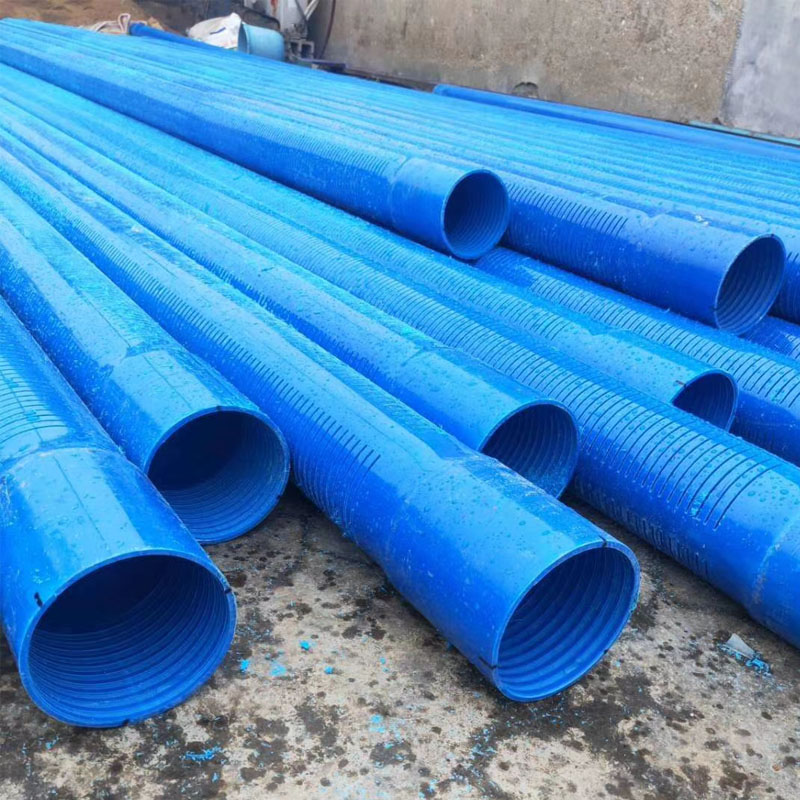Oct . 11, 2024 21:17 Back to list
Types and Sizes of PVC Pipes from Leading Manufacturers in the Industry
PVC Pipe Types and Sizes A Comprehensive Guide to Manufacturers
In modern construction and plumbing, PVC (polyvinyl chloride) pipes have become a prevalent choice due to their durability, affordability, and versatility. These pipes come in various types and sizes tailored to meet a wide range of applications, from residential plumbing to industrial uses. Understanding the different types of PVC pipes and their respective sizes is crucial for selecting the right one for your project. This article will explore the types of PVC pipes available in the market, their sizes, and highlight some key manufacturers.
Types of PVC Pipes
1. Schedule 40 PVC Pipe Schedule 40 PVC pipes are one of the most common types found in both residential and commercial settings. They are designed for low-pressure applications, typically used in drainage, waste, and vent applications. With a thinner wall compared to other schedules, Schedule 40 pipes are easier to handle and install, making them a favorite among DIYers and professionals alike.
2. Schedule 80 PVC Pipe For applications requiring higher pressure and more robust performance, Schedule 80 PVC pipes are recommended. These pipes have thicker walls, allowing them to withstand greater pressure, making them suitable for industrial and chemical handling applications. Schedule 80 pipes are often used in irrigation systems, chemical processing, and high-pressure environments.
3. PVC-U Pipe PVC-U (unplasticized polyvinyl chloride) pipes are rigid and do not contain any plasticizers, resulting in a material that is stronger and has a longer lifespan than standard PVC. These pipes are typically used in potable water supply and sewage systems, owing to their high resistance to corrosion and chemical exposure.
4. CPVC Pipe Chlorinated PVC (CPVC) pipes are another variant that can withstand higher temperatures, making them suitable for hot water applications. They are often favored in domestic water systems, especially where hot water is needed, as well as in industrial settings that require the transmission of hot fluids.
5. Flexible PVC Pipe Flexible PVC pipes are used in applications that require bending or twisting without breaking. These pipes are often employed in pool installations, landscape irrigation, and various types of flexible plumbing needs.
PVC Pipe Sizes
PVC pipes come in a variety of sizes, commonly measured in inches, which can make choosing the appropriate size for your project straightforward. The most common diameters for PVC pipes range from 1/2 inch to 12 inches, though larger sizes are available for specialized applications. The nominal pipe size (NPS) can affect both the flow rate and the speed of installation.
- Small Diameter Pipes (1/2 to 2 inch) Typically used in residential plumbing, these pipes are adequate for venting and drainage systems. - Medium Diameter Pipes (2 to 6 inch) Often utilized in commercial plumbing and irrigation systems due to their balance between flow capacity and manageability.
pvc pipe types and sizes manufacturers

- Large Diameter Pipes (8 above) Used in industrial applications, large irrigation projects, and main waterlines, these pipes can handle significant volumes of materials.
Leading Manufacturers
When it comes to selecting quality PVC pipes, several key manufacturers stand out
1. Charlotte Pipe and Foundry Known for a wide array of plumbing products, Charlotte Pipe is one of the largest manufacturers of PVC pipes in North America, offering both Schedule 40 and Schedule 80 pipes.
2. Spears Manufacturing Specializing in a diverse range of thermoplastic and PVC products, Spears is recognized for its high-quality fittings and durable pipes used in various applications.
3. NIBCO NIBCO provides a robust selection of PVC pipe products, including innovative designs tailored to the plumbing and heating markets.
4. Georg Fischer With a global presence, Georg Fischer offers a range of PVC pipes that are suitable for industrial applications, ensuring high quality and reliability.
5. Harvel Plastics Specializing in industrial-grade PVC pipes, Harvel provides a variety of custom solutions to meet specific project requirements.
Conclusion
Choosing the right type and size of PVC pipe is vital to the success of any construction or plumbing project. Understanding the differences between Schedule 40, Schedule 80, and other variations ensures that you select the best material for your needs. With numerous manufacturers offering high-quality products, finding the right PVC pipe for your application has never been more accessible. By considering the type, size, and manufacturer, you can ensure optimal performance and longevity for your plumbing systems.
-
High-Quality PVC Borehole Pipes Durable & Versatile Pipe Solutions
NewsJul.08,2025
-
High-Quality PVC Perforated Pipes for Efficient Drainage Leading Manufacturers & Factories
NewsJul.08,2025
-
High-Quality PVC Borehole Pipes Durable Pipe Solutions by Leading Manufacturer
NewsJul.08,2025
-
High-Quality PVC Borehole Pipes Reliable PVC Pipe Manufacturer Solutions
NewsJul.07,2025
-
High-Quality UPVC Drain Pipes Durable HDPE & Drain Pipe Solutions
NewsJul.07,2025
-
High-Quality Conduit Pipes & HDPE Conduit Fittings Manufacturer Reliable Factory Supply
NewsJul.06,2025

